Contact
June 2019 NextGen Leaders Trip to Seoul
The sixth delegation of the U.S.-ROK Next Generation Leaders Program (NextGen), comprising nine up-and-coming leaders of East Asia policy, traveled to Seoul from June 3 to June 7, 2019. Led by John S. Park (Harvard University), with the assistance of Alison Szalwinski (NBR) and Julia Oh (NBR), the delegation engaged in timely discussions with representatives from the Republic of Korea (ROK), U.S. military and government agencies, and top scholars on a wide range of policy issues.
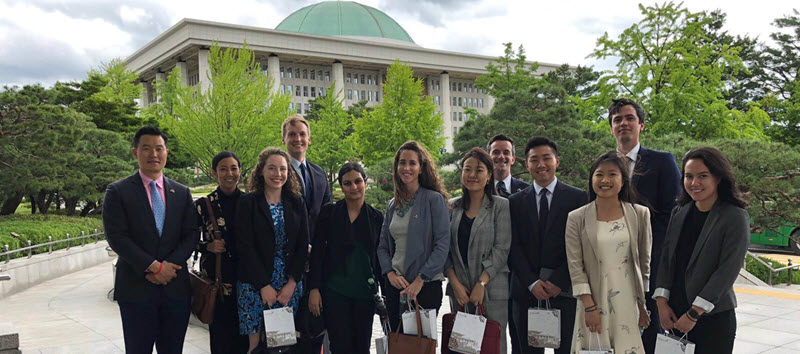
Delegation members in front of the National Assembly building.
These included a meeting with officials at South Korea’s executive mansion, the Blue House (Cheong Wa Dae), giving participants an opportunity to gain insights into the ROK executive branch’s planning for peace negotiations with the Democratic People’s Republic of Korea (DPRK). The delegation had further meetings and roundtables at several government ministries, including the Ministry of Defense, the Ministry of Unification, and the Ministry of Foreign Affairs. Delegates discussed the role of sanctions in the ongoing peace negotiations, South Korea’s relationship with and pressure from China, trilateral U.S.-ROK-Japan relations, and U.S.-DPRK summit outcomes and the likelihood of a future meeting between President Donald Trump and Chairman Kim Jong-un. Through these meetings, the delegates developed a better understanding of the changing nature of inter-Korean relations, as well as the ROK’s diplomatic strategies vis-à-vis its neighbors. Participants also gained insights into domestic politics through a visit with National Assembly member Hanjun Kim.
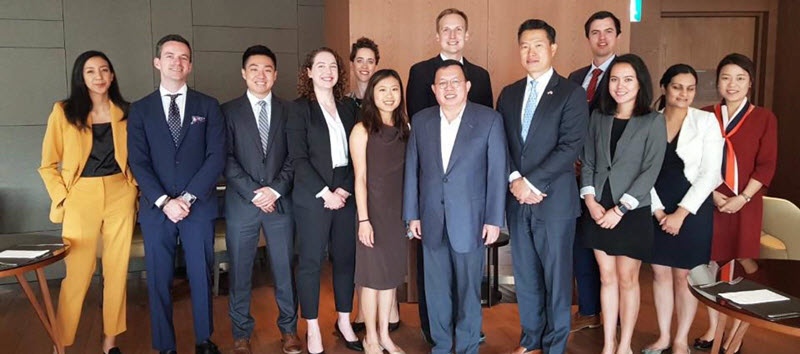
NextGen participants at their meeting with ROK Lt. General (ret.) Chun In-Bum.
The delegation also met with U.S. and UN military officials and diplomats. Lieutenant General Wayne Eyre, deputy commander of the United Nations Command, briefed delegates on the role and revitalization of the UNC, the security alliance, and the regional threat environment at the U.S. Army Garrison at Camp Humphreys (Pyeongtaek). The delegation also received a country brief from U.S. diplomats representing the Economic, Consular Affairs, Political, Commercial, and Public Affairs sections at the U.S. Embassy in Seoul. Participants discussed U.S. policy interests on the Korean Peninsula, the impact of the South Korean economy on issues critical to the alliance, and options for improving U.S.-ROK-Japan relations.
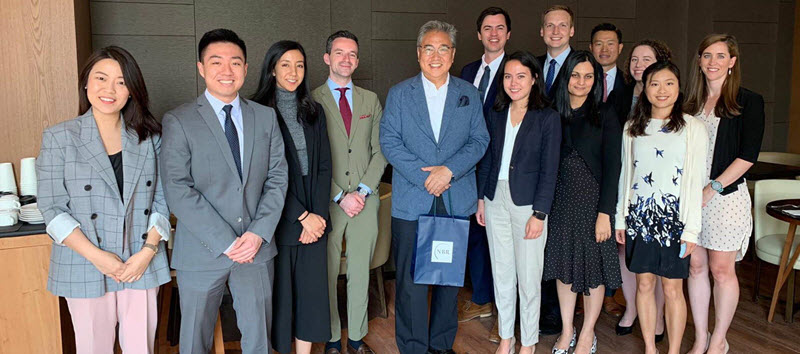
The NextGen delegation at their briefing with Jin Park, Executive President of the Asia Future Institute think tank and a former member of the ROK National Assembly.
In addition to government officials from the United States and South Korea, the delegation met with former government officials, academic and think tank scholars, students, and journalists. These meetings included a roundtable with the Institute of Foreign Affairs and National Security at the Korea National Diplomatic Academy. Participants heard from experts on ROK-China relations and North Korean nuclear activity and shared their own perspectives on U.S. policy toward Korea and the region.
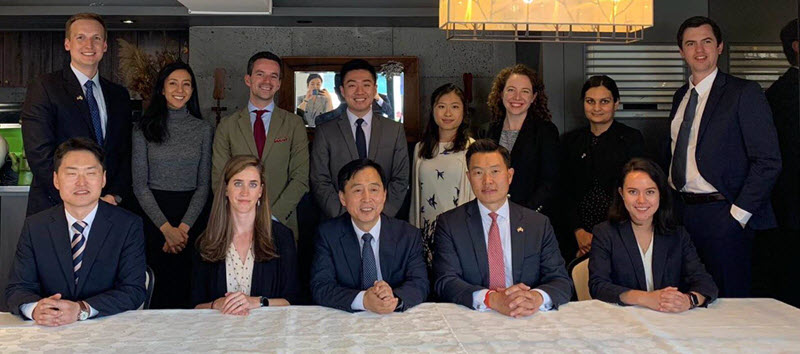
KF Executive Vice President Seong-in Kim hosts the delegation for lunch.
Delegates also met with several rising Korea scholars, including Youngjun Kim of the National Defense University, Dongmin Lee of Dankook University, and June Park of George Mason University. Foreign and domestic correspondents from the Los Angeles Times, NK News, Reuters, Munhwa Ilbo, and Seoul Shinmun joined the delegation for a dinner and shared their insights on domestic trends and issues. The delegation also had the opportunity to hear from Korean youth during a breakfast discussion with Yonsei University students hosted by Professor John Delury.
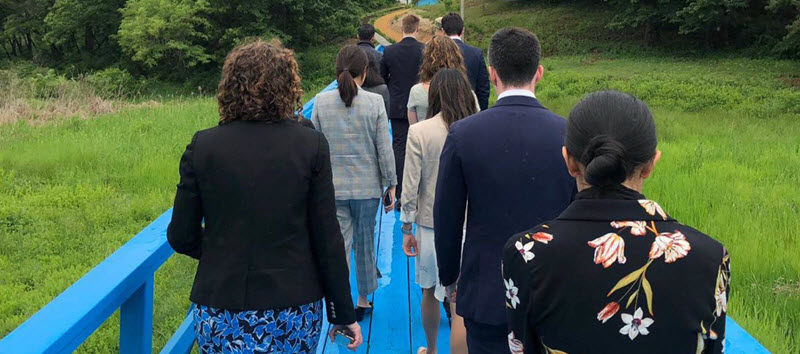
Delegation members walk across the blue bridge at the truce village of Panmunjeom, DMZ.
Participants gained an appreciation of Korea’s culture and history through visits to places such as to Gyeongbok Palace and Bukchon Hanok Village in Samcheongdong. The delegation also traveled to the Joint Security Area at the Demilitarized Zone (DMZ), where they were briefed by the UN Command on recent fast-paced developments at the DMZ, including the inter-Korean summit held in Panmunjom. Delegates stood at the military demarcation line and looked into North Korea, three weeks before President Trump made headlines for his handshake with Kim Jong-un at the same place. To cap off the week, participants attended a Korean Baseball Organization League game between the LG Twins and the KT Wiz at Jamsil Stadium in Seoul.
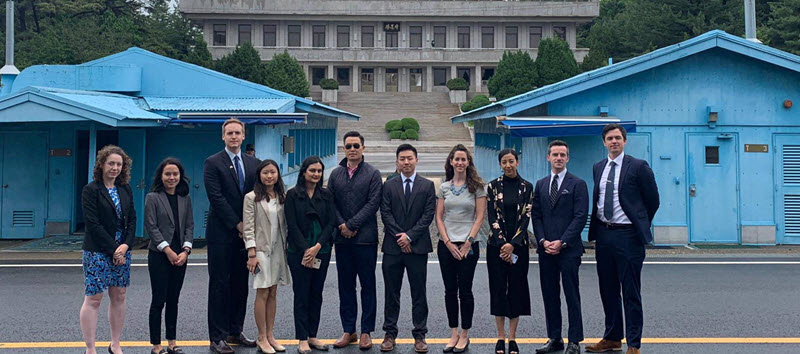
The delegation visiting the DMZ.
About the U.S.-ROK Next Generation Leaders Program
NextGen Leaders is an educational program designed for emerging and established policy leaders in the United States to visit the Republic of Korea (ROK), develop a rich understanding of U.S.-Korea policy issues, and form close and continuing ties with each other and the Korean policymaking community. The program aims to deepen U.S.-ROK ties through ongoing dialogue between current and future leaders across the policy field. Learn more.



